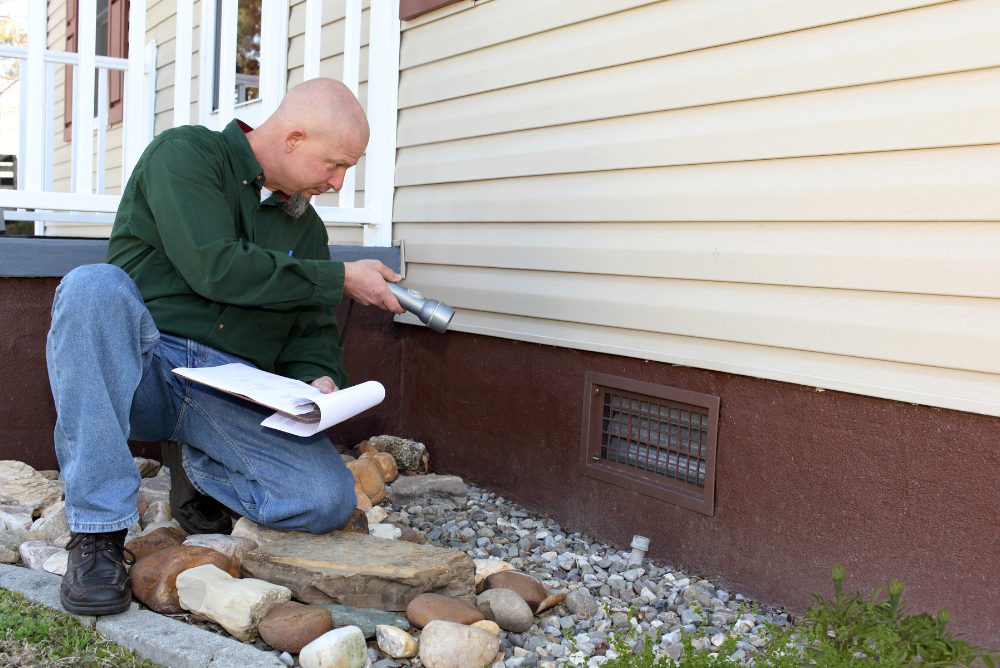As a buyer, you want to make informed decisions about the home you’d like to purchase. When it comes to the home inspection, we recommend asking the questions below to get the most out of it. By doing so, you’ll uncover potential issues and can decide what’s the best next step given all you’ve learned.
Home Inspection 101
If you’re a first-time homebuyer, you may be wondering what exactly a home inspection entails. In short, it’s a visual assessment of a home’s condition. A home inspector looks for a wide range of potential problems throughout the home, including issues with walls, floors, windows, doors, decks, attics, ceilings, and more. As a buyer, you may want to accompany the inspector during the inspection. As the National Association of Realtors (NAR) explains, “Inspectors can show potential homeowners where certain plumbing or electrical details are located and help buyers understand the scope of a potential problem.” Additionally, NAR states that, “A member of the American Society of Home Inspectors (ASHI) or the International Association of Certified Home Inspectors is a trustworthy individual to perform the inspection.”
A home inspection is not meant to, nor can it, guarantee the condition of a home on the closing date. Furthermore, conditions can change between the inspection and the closing. There are conditions that are obviously hazardous and others that are less clear-cut. For example, exposed electrical wiring is clearly unsafe whereas the presence of mold isn’t as easy to assess since there are many different kinds. (We also live in a damp climate here in Bainbridge Island, WA.) Asbestos, mold, water purity, and similar issues typically require a specialist inspection.
Keep in mind that home inspectors are not experts in every home system. As the International Association of Certified Home Inspectors states, home inspectors are “generalists trained to recognize evidence of potential problems in the different home systems and their major components. Inspectors need to know when a problem is serious enough to recommend a specialist inspection. Recommendations are often made for a qualified contractor, such as a plumber or electrician, and sometimes for a structural engineer.”
When Hiring an Inspector
When interviewing inspectors, ask how they handle special safety concerns. If you have a well-connected local real estate agent, they’ll be able to refer you to someone they’ve worked with before. Whether you’re finding someone on your own or working with someone your Realtor recommended, it’s important to directly communicate with them. Ask any and all questions you may have. This will prevent assumptions or misunderstandings, ensuring a smoother real estate transaction overall.
Questions to Ask:
- How long have you been an inspector? We recommend asking for referrals, especially if it’s a newer inspector.
- Do you have a background in residential inspections?
- Are you a member of a professional home inspector association, and do you hold any other credentials?
- What will your inspection cover? Be sure to get this information in writing. You’ll also want to make sure that it’s in compliance with state requirements and includes the items you want to be inspected.
- How long will the inspection take? It usually takes 2 – 3 hours for a single-family home, but this specific property may be different.
- How much will it cost? Costs vary based on factors such as the home’s square footage and age.
- Can I be present for the inspection, and will you go over the inspection report with me? This can be very valuable. If an inspector says no, that’s a red flag.
Home Inspection Questions
Here are some helpful questions to ask during and after the home inspection. Remember, the more specific you are, the more detailed their responses will be. You want to learn all you can about this property – whether it’s a turnkey property or a fixer-upper.
- What is the home’s overall condition?
- Do you see any immediate safety concerns?
- Are there any cracks or signs of shifting in the foundation?
- How old is the roof, and are there any leaks, missing shingles, or damage?
- Are the electrical systems up to code?
- Is the plumbing all in good working order?
- Do you see any signs of leaks or water damage?
- How old is the HVAC?
- Are the HVAC systems working properly?
- When examining the ceilings, floors, and walls, do you see any issues?
- Are all of the windows and doors in good condition?
- Is the home’s exterior in good condition overall?
- Are there any signs of rodents or pests?
- Is there any evidence of mold or moisture issues?
- What types of maintenance should be budgeted for after purchasing this home?
- In the long term, are there any specific issues or concerns?
The More You Know
Home tours and professional photos showcase a home’s best features while a home inspection lists all of the property’s flaws and potential issues. It isn’t glamorous, but finding out more will give you the information you need to negotiate and/or decide what is best for you. The last thing you want is to experience buyer’s remorse. Be as thorough as possible, and try to see the property through the inspector’s eyes.
If you forego a home inspection, it could potentially cost you a lot of money and many hassles down the road. Getting one done can uncover important insights and provide peace of mind during this phase of the home-buying process.

 Facebook
Facebook
 X
X
 Pinterest
Pinterest
 Copy Link
Copy Link
